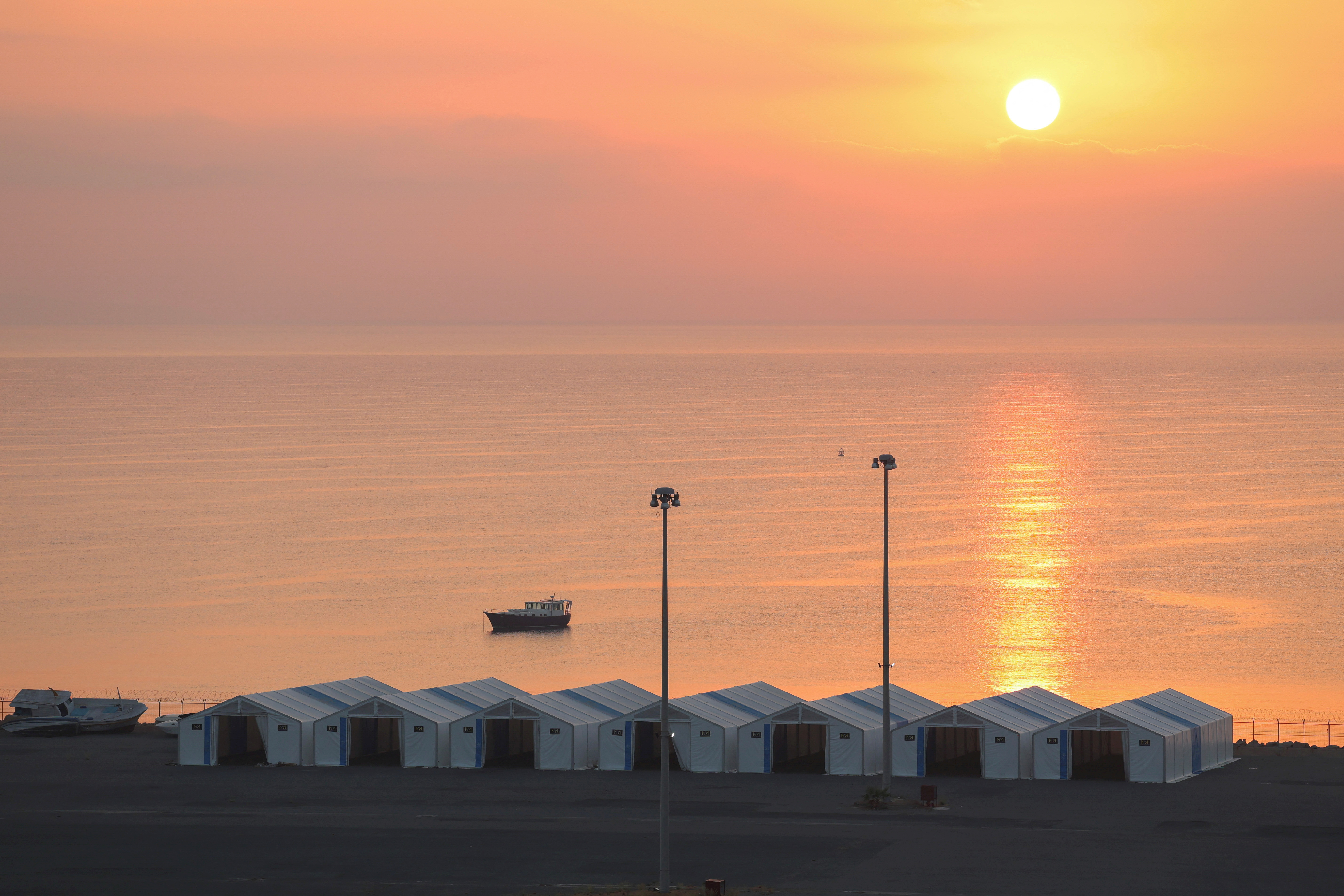Cyprus is at its “maximum state of readiness” for a potential evacuation of European Union and third country nationals from Lebanon, foreign ministry spokesman Theodoros Gotsis said on Monday.
Gotsis was speaking to the Cyprus Mail about the potential activation of Cyprus’ ‘Estia plan’, under which the country acts as a hub for EU and third country nationals to be evacuated from conflict zones to the island before travelling onwards to their countries of origin.
To date, despite the political situation in Lebanon teetering on the brink of all out conflict, Gotsis said the government has not yet received a formal request from any foreign government regarding the potential evacuation of civilians.
As such, the ‘Estia’ plan remains not yet activated, though this has not stopped the Cypriot government from making preparations ahead of any such request or further deterioration in Lebanon.
Photographs released on Monday revealed a line of large tents had been erected inside the grounds of the Larnaca port in preparation for any such evacuation.
Gotsis said the tents had been placed as part of the government’s “maximum state of readiness” for the ‘Estia plan’ to be activated, with the tents set to be used for matters such as registering arrivals and other administrative functions.
With preparations in Cyprus ramping up, the Cyprus Mail contacted the governments of France and the United Kingdom for comment on their potential preparations for any given evacuation.
The UK had announced last week that it had sent 700 troops, border force agents, and other officials to Cyprus to help with contingency planning for a range of scenarios in Lebanon.
The country’s foreign office had said the teams “joined the already significant UK diplomatic and military footprint in the region”, with the country also reopening a scheme for its citizens called “Register Your Presence”, which it says will support its citizens in Lebanon and “provide vital updates”.
France was the last colonial power to hold Lebanon, ruling over the country between 1920 and its independence in 1945. There were an estimated 23,000 French nationals living in Lebanon in 2020.
Preparations for a possible mass exodus from Lebanon come as tensions continue to escalate the region, with Israel having wiped out most of militant group Hezbollah’s leadership, including its leader Sayyed Hassan Nasrallah, in recent weeks.
Israel then struck central Beirut with a missile for the first time since 2006 on Monday morning, with other previous strikes having hit the outskirts of Lebanon’s capital.
Meanwhile, the United Nations reported that 100,000 people have fled Lebanon for Syria since the latest escalation in the conflict, while the country’s Prime Minister Najib Makati said Israel’s continuing air strikes may have already forced a million people to across Lebanon to leave their homes.
Cyprus has been on standby for any activation of the ‘Estia’ plan throughout the summer, with deputy government spokesman Yiannis Antoniou saying the island was ready in July.
“If help is needed, we will provide it. We have the know-how and the infrastructure to do so,” he added.
The Estia plan has been activated before, most recently in October last year following Hamas’ attack on Israel, as EU and third country nationals fled the country after the attack.
The plan entails Cyprus acting as a hub for third country nationals fleeing a neighbouring country before being repatriated to their own countries of origin.
When Sudan was evacuated in April last year, a total of 2,611 people arrived in Cyprus, while over 1,000 are known to have arrived from Israel in October.







Click here to change your cookie preferences